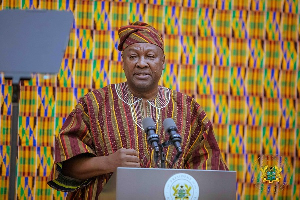The Gender Centre for Empowering Development (GenCED), a gender based policy think tank on Tuesday called for the decentralization of International day commemorations, especially the World AIDS Day.
Ms Esther Tawiah, GenCED Executive Director noted that for Ghana to join the rest of the world to end the AIDS epidemic by 2030 which forms part of the Sustainable Development Goals, then “we must include the rural communities in campaign”.
Speaking to the Ghana News Agency in an interview as Ghana joined the global community to observe the World AIDS Day, which was marked on December 1; Ms Tawiah noted that the 2030 Agenda for Sustainable Development Goals reflects the interdependence and complexity of a changing world and the imperative for global collective action.
“Ending the AIDS epidemic and leaving no one behind in the response will profoundly affect the lives of millions of people around the world, for generations to come,” she noted.
She noted that Ghana must through the AIDS Commission must broaden the scope of the campaign on healthy safe sex practices as well as adopt holistic rural centre communication strategy to educate “people in rural areas”.
Ms Tawiah noted that despite major advances, HIV/AIDS remains one of the world's most significant public health challenges, particularly in low and middle income countries.
World AIDS Day is used to unite people in the fight against HIV, the human immunodeficiency virus first identified in 1984, to show their support for people living with HIV and commemorate those who have died.
The member countries of the United Nations agreed in September in a new set of global goals to end the AIDS epidemic by 2030.
Quoting 2015 statistical data from the World Health Organisation, the United Nations Children's Agency, UNICEF, and UNAIDS, Ms Tawiah explained that global figures estimates that about 36.9 million people are living with HIV including 2.6 million children.
An estimated two million were infected in 2014; an estimated 34 million people have died from HIV or AIDS, including 1.2 million in 2014.
She said the statistics indicates that the number of adolescent deaths from AIDS has tripled over the last 15 years; and in sub-Saharan Africa, the region with the highest prevalence, girls account for 7 in 10 new infections among those aged 15-19.
The global response to HIV has averted 30 million new HIV infections and nearly 8 million deaths since 2000.
The GenCED Executive Director therefore called for attitudinal change in spite of the seemingly improvement in national statistics about the prevalence rate stressing that “outdated stereotypes, and myths about HIV and AIDS must be eliminated”.
The United Nations' (UN) World AIDS Day is held on December 1 each year to honour AIDS victims. It also focuses on issues surrounding HIV and AIDS.
Many people hold events on World AIDS Day to remember people who died of AIDS-related conditions.
Health News of Wednesday, 2 December 2015
Source: GNA












